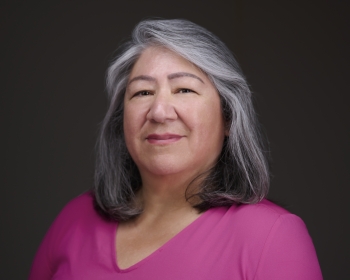New director of American Indian Studies hopes to bring increased visibility to program
Angela Gonzales began her role on July 1
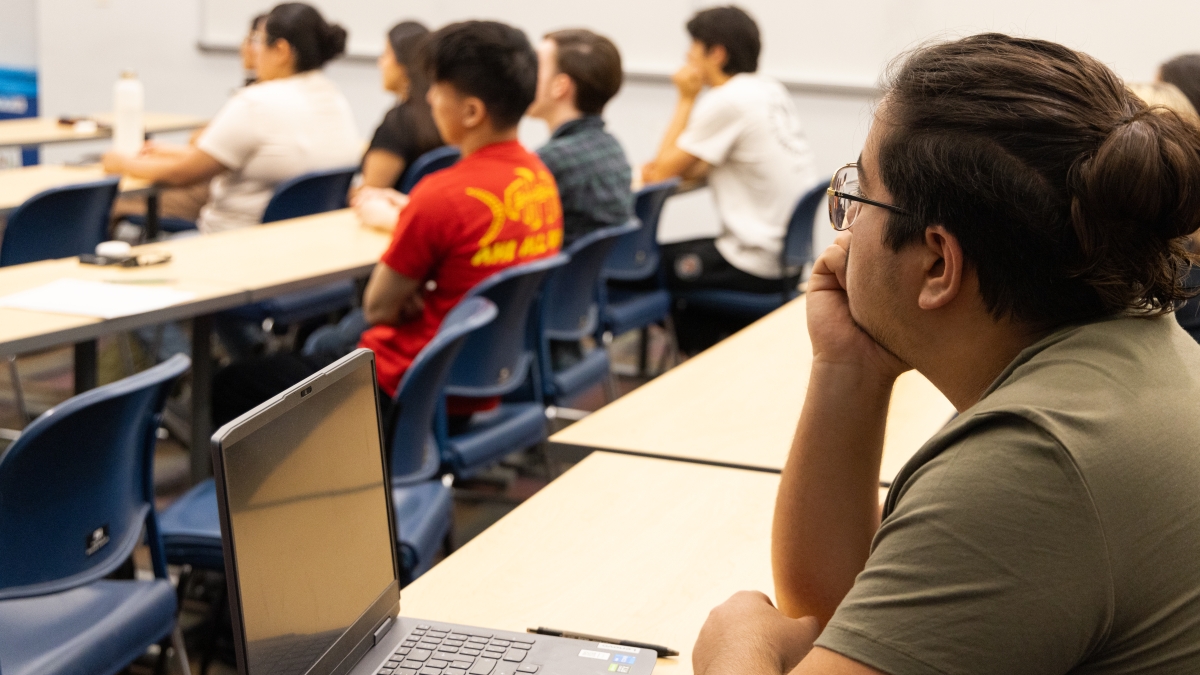
Students participating in an American Indian Studies class. ASU photo
The College of Liberal Arts and Sciences at Arizona State University has announced that Angela Gonzales is the new director of American Indian Studies. Her role officially began July 1.
Gonzales is transitioning from her role as interim director of ASU's Center for Indian Education (CIE). A professor in the School of Social Transformation, she has previously served as the faculty lead of justice studies and as the school’s associate director.
Gonzales is an Arizona native and a citizen of the Hopi Nation. Before coming to ASU in 2016, she served on the faculty at Cornell University. While there, she worked with Haudenosaunee communities in upstate New York but kept an eye on ASU and its growing representation of Native faculty and tribally engaged research.
“I really wanted to be at a place where there were more Native faculty than you can count on one hand," she said. “You just can't rival the kind of Native presence and community engagement that is happening here at ASU.”
Gonzales’ vision for the future of American Indian Studies at ASU is deeply rooted in a commitment to research, teaching and service that contribute to our understanding of Indigenous people's history and experience and their economic, social, cultural and psychological well-being.
“ASU has many assets, including its faculty and students, as well as its charter and commitment to American Indian tribal communities and people,” Gonzales said.
In her transition, she will bring the CIE's online master’s degree program in Indigenous education with her to American Indian Studies. The program provides advanced training in research, theory and practice related to Indigenous education and policy to teachers and program administrators working with Native students. In partnership with the Kamehameha Schools of Hawaii, the program includes a Native Hawaiian track that has nearly doubled the program’s enrollment.
“The program provides an essential opportunity for students from many local reservations, as well as from Indigenous communities across the U.S. to earn an advanced degree while remaining embedded in their home communities,” she said. “The move to American Indian Studies will leverage existing faculty expertise at the same time that it helps address critical instructional and student mentoring needs.”
While a faculty member at Cornell, Gonzales collaborated with the Hopi Tribe on a five-year study, "A Cluster-Randomized Trial to Evaluate a Mother-Daughter Dyadic Educational Intervention for Increasing HPV Vaccination Coverage in American Indian Girls
“As a result of the information we gathered, we were able to develop educational materials that integrated Hopi cultural values and knowledge to increase knowledge about HPV, as well as screening and vaccination rates in the community,” she said.
At ASU, Gonzales is helping to lead the Indigenous Health Research Equity Initiative, a university-wide initiative promoting community-centered research that amplifies Indigenous ways of knowing, doing and being through all aspects of the research life cycle. With funding from the Genentech Health Equity & Diversity in STEM Innovation Fund, the initiative focuses on the structural drivers of Indigenous health equity by developing solutions that support tribal sovereignty and self-determination in creating high-performing, tribal-controlled health care systems that advance the health and well-being of tribal citizens.
As an interdisciplinary researcher, Gonzales is also working on the Arizona Youth Identity Project in collaboration with colleagues in the T. Denny Sanford School of Social and Family Dynamics. The project seeks to understand how Latino, Native American and white young adults think about themselves as Americans and their sense of national belonging.
As a Hopi tribal member, Gonzales remains closely connected to the Hopi Nation, serving as the president of the Colorado Plateau Foundation board and founding board member, and later the board president of the Hopi Education Endowment Fund. The fund is a foundation that helps ensure that future generations of Hopi students will have the opportunity to pursue higher education.
“As a recipient of tribal grants and scholarships that supported my undergraduate and graduate education, I am committed to ‘paying it forward’ to ensure that future generations of Hopi students have the opportunity to pursue higher education,” she said.
Gonzales attended the University of California at Riverside, where she received her bachelor’s degree in sociology. Her interest in the subject stemmed from wanting to learn more about race and identity and how populations understand the racialization of their identity. Afterwards, she attended Harvard University, where she received both her master’s degree in education and completed her PhD in sociology.
More Arts, humanities and education
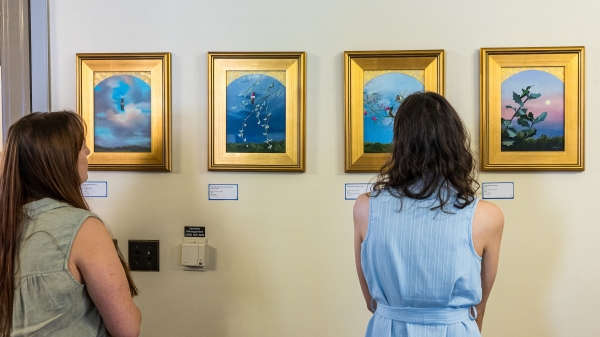
Late poet's words take flight on walls of Piper Writers House
There are hundreds, if not thousands, of poems about hummingbirds. But chances are they’re not about putting the delicate birds to death.The late Arizona State University Professor Norman Dubie,…
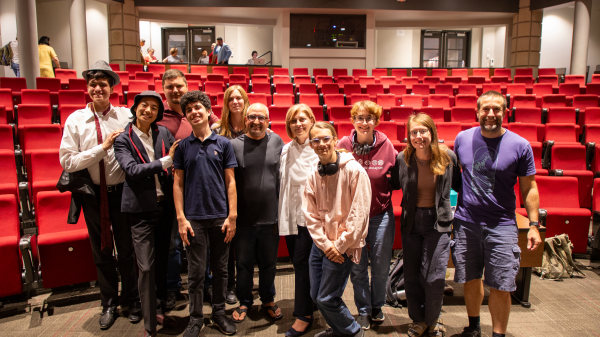
Melikian Center events bridge cultures through dance, cuisine
By Victor JohnsonAs the summer officially kicks off in Arizona, so has the Critical Languages Institute (CLI) program, an enriching initiative that shines a spotlight on the diverse languages and…
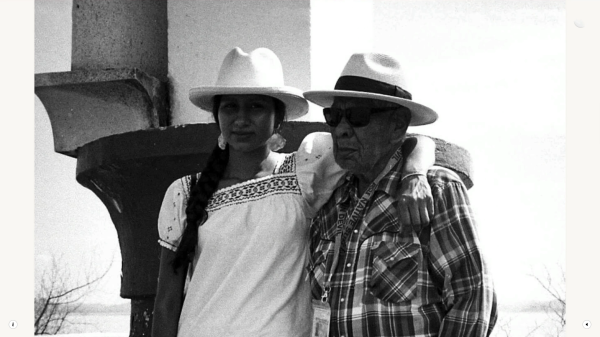
ASU alum collaborates with British Museum to tell the story of the Yaqui
Selina Martinez is on a mission to tell the story of the Yaqui, a group of Indigenous peoples originally from Sonora, Mexico, who now inhabit regions on both sides of the United States–Mexico border.…
